Politics
Modi to Visit UK Next Week for Historic Trade Deal Signing
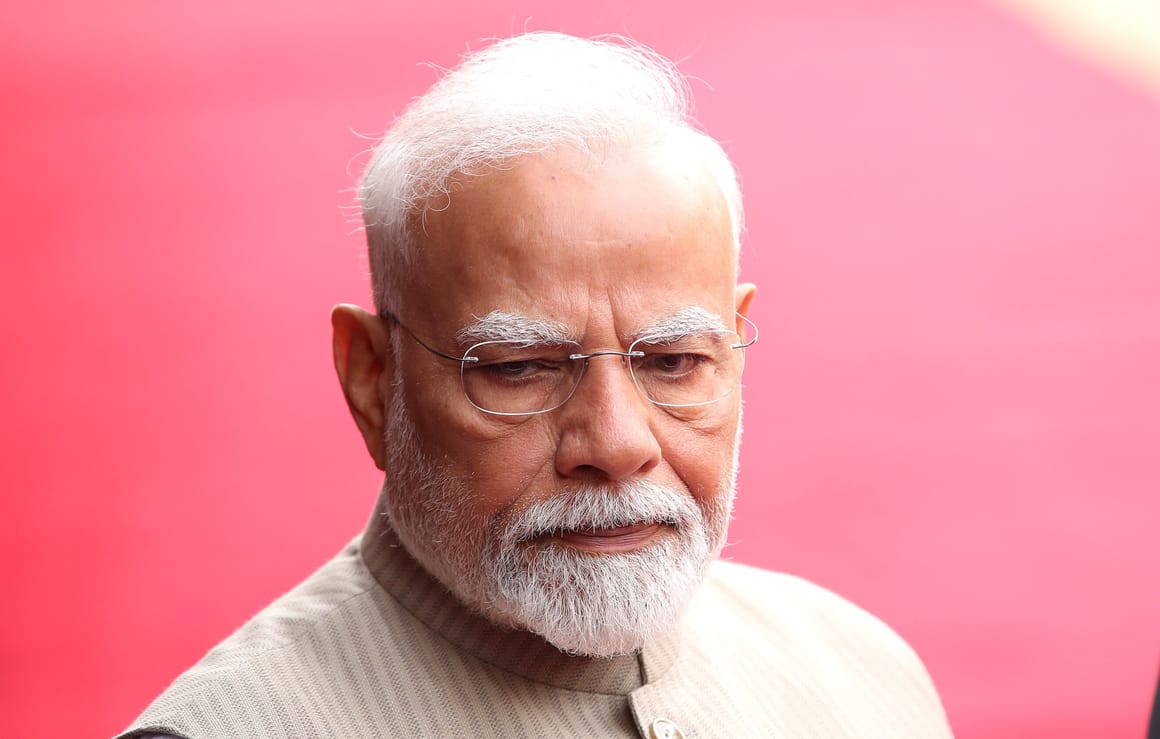
Indian Prime Minister Narendra Modi is set to travel to the United Kingdom next week to finalize and sign a significant trade deal with Labour leader Keir Starmer. This visit, occurring on July 24, 2024, marks Modi’s first trip to the UK since 2018 and culminates three years of negotiations aimed at enhancing trade between the two nations.
The trade agreement has been in provisional stages since May, following extensive discussions that began in the context of former U.S. President Donald Trump’s trade policies. As the deadline approaches for the completion of the “legal scrubbing” of the deal, officials from both countries are working diligently to finalize the text before the signing.
Trade Deal Details and Implications
According to the Indian Commerce Ministry, the goal is to have the trade deal signed by the end of July. Sources familiar with the discussions have indicated that both Modi and Starmer aim to sign the agreement before the month concludes, initiating the ratification process in both nations.
One anonymous source noted that Modi’s visit is characterized as a “flying visit” to expedite the signing of the Free Trade Agreement (FTA). There had been discussions about Starmer traveling to India for the signing, but plans shifted to accommodate Modi’s schedule.
Modi is expected to attend the Independence Day celebrations in the Maldives on July 25, 2024, which necessitates a stop in the UK on the 24th. However, if the legal scrubbing takes longer than anticipated, the timing of Modi’s trip may change.
Challenges and Next Steps
Despite the progress made, there have been reports of “some discomfort” regarding specific provisions of the deal, particularly concerning taxation measures. Both sides are committed to resolving these issues before the agreement is finalized. Once signed, the deal will undergo parliamentary scrutiny in the UK and require review by India’s Cabinet before it can take effect.
A spokesperson for the UK government emphasized the importance of this trade deal, stating, “We have been working with India on a landmark trade deal that will deliver for British people and business as part of our Plan for Change by adding £4.8 billion to the UK economy.” This figure highlights the potential economic impact and mutual benefits expected from enhanced trade relations.
As the signing date approaches, both countries are poised to strengthen their economic ties, reflecting a commitment to growth and collaboration in an increasingly interconnected global market.
Politics
Young Catholics Embrace Faith in Global Revival Trend
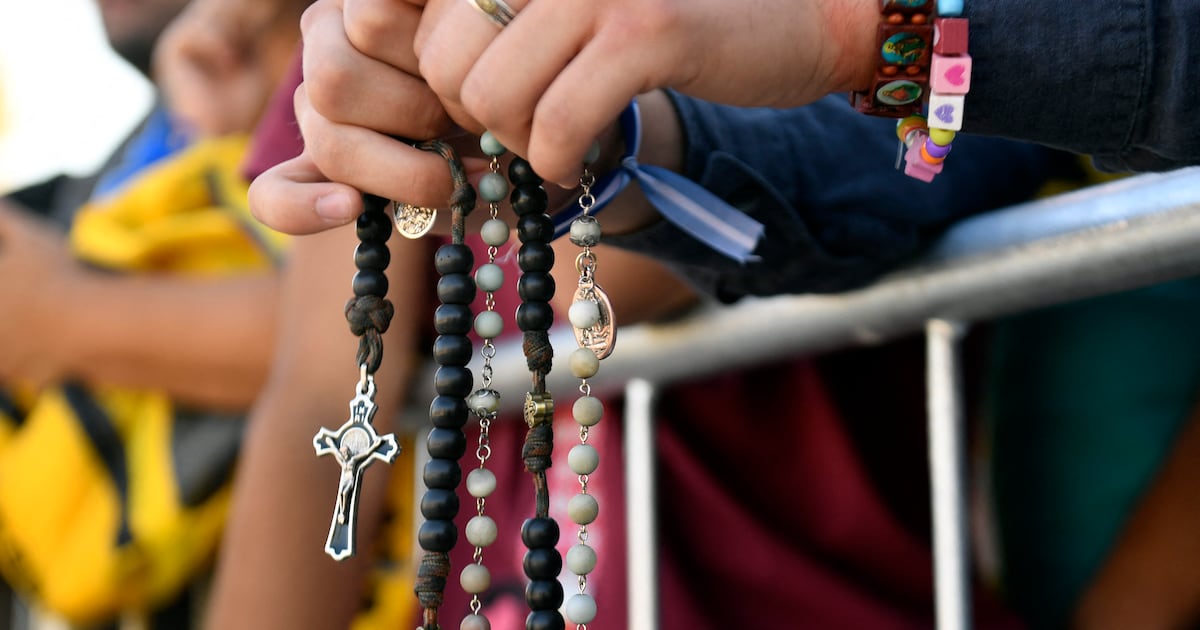
A significant trend is emerging within Catholic communities worldwide, as a growing number of young people are either returning to or discovering the depths of their faith. This revitalization is particularly evident among those under 25, who are increasingly engaging with the Church and its teachings. According to a report by The Times in 2024, attendance at church among young adults aged 18-24 has risen from just 4 percent in 2018 to 16 percent in 2024. Notably, the figures for young men increased from 4 percent to 21 percent, while young women saw a rise from 3 percent to 12 percent.
The Catholic Church is responding to this resurgence with initiatives like World Youth Day, which gathers young people aged 18-35 every four years. In 2023, this event drew an impressive 1.5 million attendees to Lisbon, Portugal, for a final Mass celebrated by the late Pope Francis. The enthusiasm observed at such events highlights a vibrant community eager to express their faith.
As a newly qualified primary school teacher in my mid-20s, I am enthusiastic about being part of this movement. Currently, I am preparing to join Bishop Fintan Gavin and 50 other young individuals from the Diocese of Cork and Ross for the Jubilee of Youth pilgrimage event in Rome, welcoming the invitation from our new pope, Leo XIV. Being part of these gatherings is invigorating and fosters a sense of belonging among participants.
Online Catholic influencers and digital missionaries are also playing a crucial role in connecting faith with contemporary culture. They creatively engage the younger generation, making the Church’s teachings more accessible. Nonetheless, there is a challenge: many Catholic communities function like social media algorithms, rewarding only those who actively seek them out. While those who engage can find various activities, including pilgrim hikes, prayer communities like Youth 2000, and events such as CONNECT in Cork City, those outside these circles often remain unaware of such opportunities.
The Church has an opportunity to enhance its outreach to young adults by actively sharing and displaying their faith in the wider community. By doing so, they can recharge the “faith battery” of those who attend. Returning from these events often leaves participants with renewed hope and vigor for the Church’s future. This experience encourages attendees to invite friends and discuss their faith journeys, fostering a supportive environment.
To attract more young people, the Church must venture beyond its walls, engaging with individuals in schools, colleges, and workplaces. It should listen attentively to the hopes, doubts, and convictions of young adults. In an age where knowledge is readily available, blind faith is no longer sufficient. The Church must be willing to face scrutiny and confidently articulate its core values.
Young Catholics are eager to find joy in their faith communities. They can draw inspiration from figures like Blessed Carlo Acutis and Blessed Pier Giorgio Frassati, who exemplified how a joyful faith can enrich a young person’s life. Blessed Carlo, soon to be canonized, was a 15-year-old who balanced his love for soccer and video games with a commitment to daily Mass. Blessed Pier Giorgio, who died on July 4, 1925, exemplified a zest for life and a dedication to helping the less fortunate, and he is also set for canonization later this year.
The Church should prioritize creating spaces where young individuals can grapple with profound questions. Inviting young people to participate in community efforts and support charitable organizations like the Society of Saint Vincent de Paul can foster a sense of belonging. The goal is not to reinvent the Church but to rediscover its essence—bold in truth, courageous in justice, radical in mercy, and steadfast in love.
Young people are looking for the fullness of the Gospel, not a diluted version. They desire a Church that clearly addresses spiritual matters while also confronting pressing issues such as climate change, mental health challenges, and social isolation. The late Pope Francis articulated this need during World Youth Day in 2023, urging, “Will the mighty of the earth listen to this youthful enthusiasm that wants peace?”
The Church is at a pivotal moment, with a chance to not only welcome young people but to walk alongside them, challenging and being challenged in return. As the revival continues, the active participation of the youth will play a crucial role in shaping the future of the Catholic Church.
Politics
Lucinda Creighton Critiques Irish Politics at MacGill Summer School
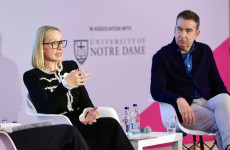
During a recent discussion at the MacGill Summer School in Glenties, Co Donegal, former Minister for European Affairs Lucinda Creighton expressed her concern over the current state of Irish politics. She argued that the national conversation is dominated by trivial issues, rather than focusing on substantial governance challenges. Creighton stated, “We’re more interested in the gossipy aspect of our parliamentary politics, rather than the nuts and bolts of how we’re governing our country.”
Creighton emphasized that the political system is currently “not fit for purpose,” noting that discussions often revolve around irrelevant topics, such as who may occupy the Áras in November. She criticized the “gossipy aspect” of politics, suggesting that it detracts from addressing pressing issues, including the ongoing housing crisis and the challenges in the energy sector.
Challenges of Governance and Leadership
According to Creighton, the inefficiencies in governance stem from an overwhelming need for caution. “Everything is, as far as I can see, government is completely strangled by the need to cover our backside and have multiple reviews about every single decision that’s ever been taken,” she remarked. This environment fosters a culture of risk aversion that hampers effective leadership and decision-making.
Creighton pointed out that this cautious approach contributes to the persistent housing crisis, which lacks “any clear, logical solution.” Furthermore, she highlighted issues within the electricity grid, describing it as “not fit for purpose” and contributing to unmet renewable energy goals.
She attributed some of these challenges to the one-year budget cycle, arguing that long-term planning is not integrated into the electoral system. “If we’re to get to grips with the sort of radical change that is happening around us right now, we have to think about how we change our politics and our system of governance,” Creighton urged. She stressed the need to equip policymakers to handle emerging challenges effectively.
Understanding Voter Concerns
In her talk entitled “Why is Liberalism Failing?”, Creighton also discussed the disconnect between political parties, particularly those on the center-left, and their constituents. She noted that research indicates a growing perception of condescension from these politicians towards voters. “If somebody expresses concern about immigration, they’re labeled far right,” she explained. This labeling, she argued, alienates voters and drives them towards extreme political alternatives.
Creighton emphasized the importance of listening to voters’ concerns rather than dismissing them. She suggested that many of these individuals experience insecurity and discomfort with rapid societal changes, which should be acknowledged rather than scorned by politicians.
Additionally, Creighton addressed the Irish government’s decision to dismantle the Triple Lock system, which currently requires multiple approvals for Irish military involvement abroad. She expressed pride in this decision, describing the Triple Lock as “an ineffectual tool” that hinders effective action in an increasingly polarized global environment.
“It’s going to be increasingly difficult in this world of authoritarianism and polarization to get things done through multilateral organizations such as the United Nations,” she warned. Creighton advocated for the necessity of forming a “coalition of the willing” to address critical issues effectively.
Overall, Lucinda Creighton’s remarks at the MacGill Summer School highlighted a pressing need for a more engaged and responsible political discourse in Ireland. Her insights resonate with ongoing concerns about governance and the importance of addressing voters’ genuine issues.
Politics
Examining the MAGA Movement: Defining Characteristics of Fascism

The movement known as MAGA, or “Make America Great Again,” has evolved significantly since its inception. It initially emerged as a reaction against immigration policies and what many supporters perceived as excessive “woke” culture. While these concerns reflect valid political positions, the current trajectory of the MAGA movement raises alarm for some observers who argue it has transformed into a manifestation of fascism under the leadership of Donald Trump.
This assertion does not equate MAGA with the most notorious fascist regimes of history, nor does it directly compare Trump to historical figures such as Benito Mussolini or Adolf Hitler. Instead, the discussion draws upon the framework established by Robert Paxton, a leading authority on fascism, who outlined key characteristics that a political movement must exhibit to be labeled fascist in his book, The Anatomy of Fascism (2004).
According to Paxton, a political entity can be categorized as fascist if it demonstrates several specific traits. These include:
1. **Militant Nationalism**: A focus on national superiority, often linked to ethnic or cultural purity.
2. **Rejection of Democracy**: Efforts to undermine democratic institutions such as elections and the judiciary.
3. **Glorification of Violence**: Endorsement or use of violence as a means to achieve political ends.
4. **Authoritarian Leadership**: Establishment of a cult of personality around a leader demanding unwavering loyalty.
5. **Anti-Liberalism and Anti-Socialism**: Rejection of pluralism, civil rights, and leftist policies.
6. **Mass Mobilization and Street Politics**: Use of rallies and protests to exert pressure and intimidate opposition.
7. **Suppression of Opposition**: Silencing dissent through various means, including legal and economic pressures.
8. **Populist Rhetoric**: Appeals to the general populace against perceived elites and outsiders.
9. **State-Corporate Alliances**: Collaboration with business elites while undermining labor movements.
10. **Expansionist or Imperialist Aims**: Aspirations for territorial or ideological dominance.
The MAGA movement appears to satisfy all these criteria. Critics argue that its reliance on populist rhetoric and its authoritarian leadership style exemplify Paxton’s definition of fascism.
Discussions surrounding the MAGA movement often include voices such as J.D. Vance, a prominent Republican who has garnered attention for his statements regarding the movement’s ideology. Vance’s recent meeting with the Alternative for Germany (AFD), a far-right party, has raised concerns about the potential export of MAGA-style politics to Europe. Critics fear that such alliances may further entrench authoritarian tendencies both domestically and abroad.
The implications of these developments extend beyond rhetoric. Legal challenges to some of Trump’s executive actions have emerged, raising questions about the strength of the checks and balances inherent in the U.S. government. Many observers worry that if Trump were to disregard court rulings, this could signify a significant erosion of democratic governance.
As this discussion unfolds, there are calls for a deeper examination of whether MAGA can genuinely be classified as a fascist movement. Proponents of this view invite dissenters to articulate how the movement contradicts or fails to encompass Paxton’s definition. They pose questions about the fundamental nature of MAGA and its alignment with historical fascist principles.
The debate over the MAGA movement is not merely academic; it has real-world consequences. It shapes the political landscape in the United States and influences the broader discourse around governance and democracy. As events continue to evolve, the implications of this ideological battle will likely resonate across political divides, prompting ongoing analysis and discussion regarding the future of American democracy.
Politics
Encountering the Reality of War: Insights from Warsaw
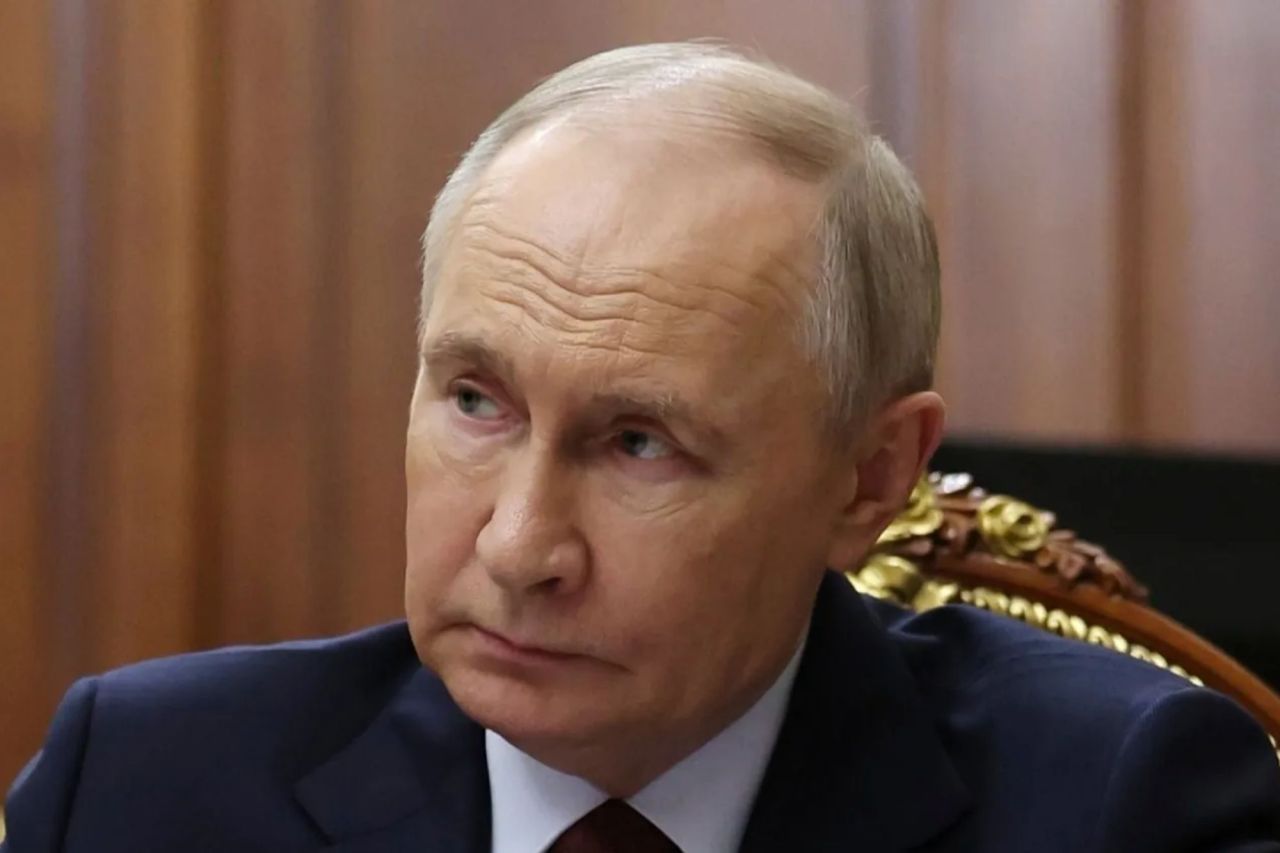
The ongoing conflict in Ukraine continues to have a profound impact on its neighboring countries, particularly Poland. During a recent visit to Warsaw, the stark realities of war became evident, raising questions about the concept of neutrality in the face of aggression from Russia.
Poland has been a frontline state in the humanitarian response to the war in Ukraine. Since the conflict began in February 2022, over one million Ukrainian refugees have sought safety in Poland. This influx has transformed Warsaw, where approximately 300,000 Ukrainians now reside, integrating into the fabric of the city. Many of these refugees are women, children, and the elderly, as the majority of Ukrainian men remain in their homeland to defend against Russian forces.
The stories of these refugees are a testament to their resilience amidst tragedy. One poignant encounter involved a young Ukrainian boy, who shared his experiences of fleeing Chernihiv, a city near the frontline that has faced relentless attacks. “Three years here,” he stated, referring to his time in Warsaw with his mother, while his father remains at the front. The boy’s words reflect a deep yearning for home and a painful recognition of the ongoing conflict that has uprooted countless lives.
The scale of destruction in Ukraine is staggering. Cities like Bucha and Mariupol have witnessed horrific atrocities, including mass executions and bombardments that have left thousands dead. According to various reports, the war has resulted in over one million casualties, with civilians bearing the brunt of the violence. The urgency of the humanitarian crisis is evident, as millions of Ukrainians have sought refuge across Europe, with about 5.6 million having fled the country overall.
In the backdrop of this humanitarian crisis, the geopolitical landscape is shifting. The recent escalation of Russian attacks has intensified fears of a broader conflict. With a significant numerical advantage in troops, the situation remains precarious for Ukraine. The need for international support has never been more critical.
Within this context, NATO has recognized the threat posed by Russia, prompting member countries to commit to increasing defense spending significantly by 2035. Such measures are seen as vital to countering potential aggression in Eastern Europe, particularly against Baltic states and neighboring countries.
The conversation around neutrality, especially in countries like Ireland, has gained momentum. As the conflict escalates, questions arise about the implications of remaining neutral in the face of a regime that poses an existential threat to European stability. Critics argue that neutrality in this context could equate to indifference, urging a reevaluation of Ireland’s stance amidst ongoing Russian aggression.
As the young boy in Warsaw dreams of returning home, the international community faces a critical moment in addressing the humanitarian needs of those affected by the war. The resilience of the Ukrainian people and the solidarity shown by neighboring countries highlight a collective responsibility to confront the realities of this conflict.
The situation remains fluid, as political leaders navigate complex diplomatic waters. The resolve of nations to support Ukraine and address the humanitarian crisis will be tested in the coming months. It is essential for the global community to remain vigilant and responsive to the unfolding events in Ukraine, ensuring that the voices of those affected are heard and acted upon.
-

 World4 days ago
World4 days agoGaza Aid Distribution Tragedy: 20 Killed Amid Ongoing Violence
-

 World4 days ago
World4 days agoHawaii Commemorates 80 Years Since Hiroshima Bombing with Ceremony
-

 World5 days ago
World5 days agoCouple Convicted of Murdering Two-Year-Old Grandson in Wales
-

 Top Stories5 days ago
Top Stories5 days agoClashes Erupt Between Far-Right Groups and Migrants in Spain
-

 Top Stories4 days ago
Top Stories4 days agoHistoric Dalkey Pub The Queens Reopens Under New Management
-

 World5 days ago
World5 days agoAristocrat Constance Marten and Partner Convicted of Infant Murder
-

 Top Stories4 days ago
Top Stories4 days agoFianna Fáil TDs Urgently Consider Maire Geoghegan-Quinn for Presidency
-

 Business5 days ago
Business5 days agoSunshine 106.8 Boosts Irish Music After Regulator’s Request
-

 World4 days ago
World4 days agoEnter to Win an APT Travelmarvel Cruise with Photo Contest
-

 World5 days ago
World5 days agoTrump Defends FBI Deputy Director Amid Epstein Files Controversy
-

 Politics4 days ago
Politics4 days agoTragic Crowd Surge at Gaza Aid Center Claims 20 Lives
-
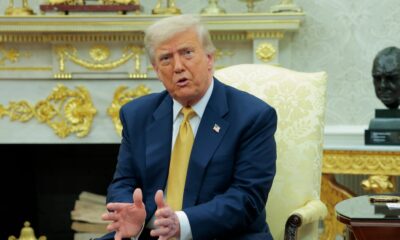
 World3 days ago
World3 days agoTrump Considers Firing Fed Chair Powell Amid Interest Rate Dispute









